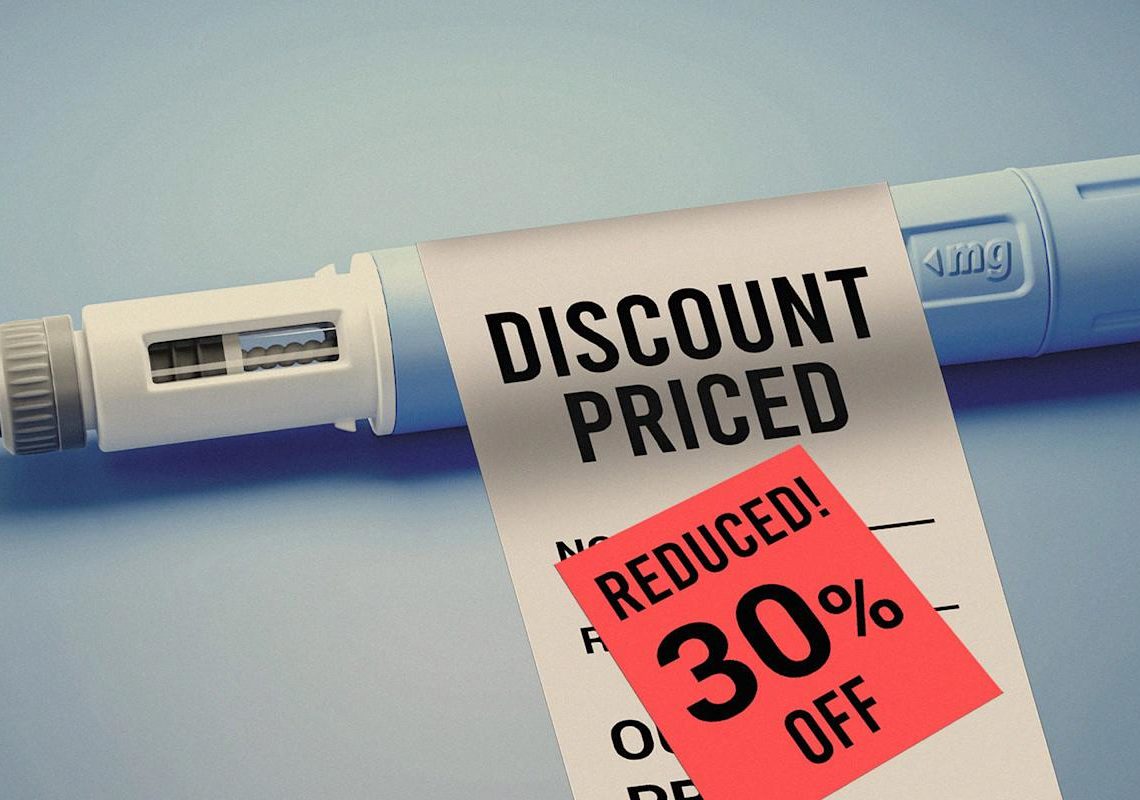The price of weight loss drugs is falling.
Wegovy and Zepbound, which both sell for a list price of more than $1,000 a month, have long been out of reach for people without insurance or whose insurance refused to cover them. Among adults who take the medications, about half say it’s difficult to afford the cost, according to a May 2024 survey by the health policy group KFF.
Over the past several months, however, drugmakers Novo Nordisk and Eli Lilly have introduced lower-cost options. There are some caveats — people must pay out of pocket, or the medication is sold in a vial rather than a prefilled injector pen — but doctors and patients say the changes are long overdue.
“The cost has come down significantly,” said Dr. Peminda Cabandugama, an endocrinologist at the Cleveland Clinic in Ohio.
Self-pay options
In March, Novo Nordisk cut the price of all doses of Wegovy by 23% for people paying in cash, dropping it from $650 to $499 per month for uninsured patients or those without coverage. (The list price of $1,349 stayed the same.)
It follows a similar move from Eli Lilly, which reduced Zepbound’s starter dose to $349 and higher doses to $499 through its self-pay program, Lilly Direct. The discounted doses require patients to manually draw the medication from a vial with a syringe, adding an extra step compared to the prefilled injector pens.
Experts point to several forces driving the falling prices: mounting pressure from the public and Congress on drugmakers’ pricing practices; competition from pharmacies, med spas and weight loss clinics offering cheaper compounded versions of the drugs — although many of those are expected to be phased out this month; and the Food and Drug Administration’s recent approval of a generic version of Victoza, an older GLP-1 medication that can start at a cost of around $350 for a month’s supply. The generic, called liraglutide, is taken daily, unlike Wegovy and Zepbound, which are taken weekly.
Cabandugama said many of his patients typically paid around $1,500 a month out of pocket for brand names Wegovy and Zepbound, but in recent months they’ve been able to get the same doses for around $400 a month or higher doses for around $500. Others switched from compounded versions to the brand-name drugs.
“A lot of patients were thinking, ‘I’m paying this amount for compounding. I couldn’t make this switch to the standardized versions,’” he said. “Now, we have the brand-name version of it for around the same cost.”
Shakira Grant, 41, of North Carolina, started using Lilly’s self-pay program for Zepbound earlier this month after a change in her insurance made her ineligible for the company’s coupon savings card.
Grant has been on a GLP-1 medication for three years — first Mounjaro, then Zepbound. (Both contain the same active ingredient tirzepatide.) She’s now paying $499 a month after previously paying around $550 with the savings card.
Without the self-pay program, Grant said she would have had to stop taking the medication because her insurance doesn’t cover it, and she couldn’t afford the more than $1,000 out-of-pocket cost.
It’s not the perfect solution, she said. Because Lilly doesn’t offer all of its Zepbound doses through Lilly Direct, she’s had to lower her dose from 15 milligrams to 10 mg. She has also found the process of drawing the medication up from a vial challenging after years of using prefilled injector pens. She said she wishes it were cheaper but that she’s willing to pay the price.
“If there was not a backup option, I would have been left with a tough decision,” Grant said. “Either I tried to afford $1,000 per month or go without the drug cold turkey after being on it for three years.”
Expanded approvals
Experts say that patients are beginning to pay less out of pocket not only because of the price drops, but also because of improved insurance coverage. The expanded approval of the drugs for conditions beyond diabetes and weight loss — including heart disease risk, for Wegovy, and obstructive sleep apnea, for Zepbound — has also persuaded more insurers to cover them, Cabandugama said.
Elizabeth Kenly, 59, of Graham, North Carolina, said she asked her doctor this month to see if her insurance would cover Zepbound for sleep apnea.
Kenly had been using a compounded version of Zepbound, paying around $600 a month. But if her insurance approves the brand name, her monthly cost could drop to as little as $25.
“The savings, if covered by insurance, would be life-changing,” Kenly said. “I am still paying what is equivalent to a monthly care payment even with the compounded version.”
Dr. Louis Aronne, a professor of metabolic research at Weill Cornell Medicine, said he’s even noticed in even recent months that pharmacies have started bringing down the prices of the weight loss drugs. Aronne serves as a chief medical adviser for Veru, a company developing an experimental weight loss drug, and was the principal investigator in a Lilly trial for tirzepatide.
“They’ve started to get really competitive,” he said.
Still a high cost
Still, barriers remain: $400 to $500 is a significant amount of money for many people.
“You’re talking $6,000 a year, and that is still probably more than insurers are paying right now” with discounts, said Dr. David Rind, a primary care physician and the chief medical officer for the Institute for Clinical and Economic Review, a group that determines fair prices for drugs.
“If insurance is relying on the fact that not covering it will allow people to buy it out of pocket, as a primary care doctor, I have a lot of concerns about that,” Rind said.
“These are actually great drugs,” he said. “For all my complaining about the price, these are drugs that we should want to give to lots of people, but it’s been really hard to see how we can afford them.”
Rind said he doesn’t expect prices to drop further anytime soon — not until other drugs in development are approved, which likely won’t happen for a few more years.
The introduction of lower-priced options and expanding insurance coverage aren’t always a win for patients.
Earlier this month, CVS Caremark announced that it will now cover Wegovy under its pharmacy benefit plans — but it will no longer cover Zepbound.
A study published in the New England Journal of Medicine this month found Zepbound outperformed Wegovy in a head-to-head clinical trial.
The move caused a stir on social media among people taking Zepbound who didn’t want to switch to Wegovy.
“This decision is purely based on economics, not clinical evidence, and it is not in the best interest of patients,” said Dr. Christopher McGowan, who runs a weight loss clinic in Cary, North Carolina, and is Grant’s doctor.
Disrupting a patient’s treatment can have serious consequences, he added. They may regain weight, see a slowdown in their weight loss or develop new side effects.
“For patients who have seen life-changing results with Zepbound, losing access can feel like a devastating loss, like losing a lifeline,” McGowan said.
This article was originally published on NBCNews.com
The post The cost of weight loss drugs is finally dropping. How low can prices go? appeared first on NBC News.



